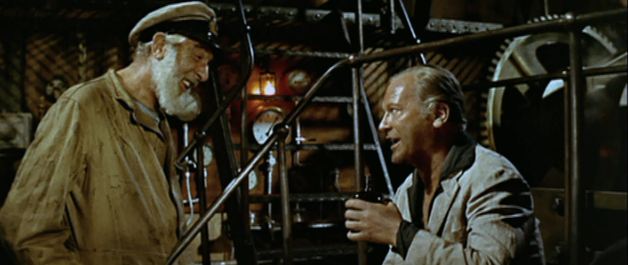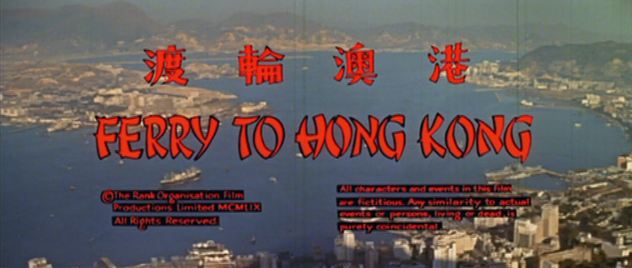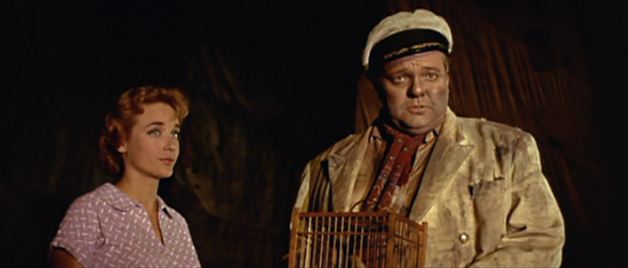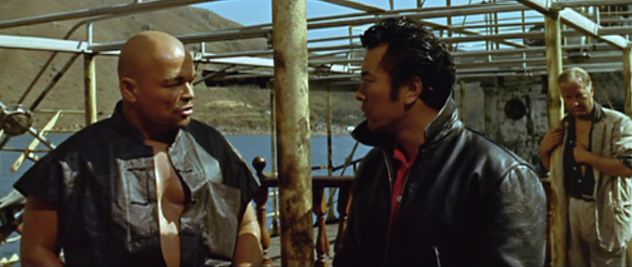There was a moment long ago when an entire movie genre was constructed out of the idea that viewers in dreary European cinemas, in dreary post-war days, could achieve a vicarious kind of tourism by being wowed by colourful scenes from overseas. These were neither comedies nor dramas, but featured elements of both, and in terms of plot, not much was required.
Lewis Gilbert’s Ferry to Hong Kong follows this pattern to a tee. It’s a story with a great setup – due to an administrative error, drunkard and down and out Curt Jurgens is fated to spend his life on a ferry between Macao and Hong Kong – neither of which he is permitted to land on. This continues fairly harmlessly until a deus ex machina forces him into the role of hero – at which point he saves the day and is able to return to quotidian life.
To say that Hong Kong is the star of this film may be true; and the film really has that 1950s travelogue angle to it. Gilbert was of course to return to Hong Kong in You Only Live Twice several years later, but in this first foray he shoots it well, perhaps too well, as one tends to wallow in these interesting shots and contrived scenes, more than one might wish to.
The star of the show isn’t really Curt Jurgens either, but is Orson Welles, who as cinema’s greatest actor appeared in a bewildering range of low brow and disappointing fare. To call Orson Welles cinema’s greatest is no idle claim; but the man could do comic turns as happily as he could do tragic, and was able to turn himself to anything. Here he has the role of the blustering British oaf down to perfection, although it’s strange to think that this would be a first choice role for one so gifted.
On the surface therefore, things look good, though there isn’t much beneath it at times. If this is a worry, then one can relax remembering that this movie came from a time when Rank was seriously trying to compete with the Hollywood studios and made increasingly lavish international co-productions, that were sold on their locations and the CinemaScope colour photography as they were anything else.

Maybe Orson Welles had nowhere else to go but down after Citizen Kane, The Third Man and his other classics, but it seems there are many more obscure and terrifyingly poor productuions he was in, including this monster, which is high on my wish-list: Trouble in the Glen (1954) in which Orson Welles appears to play more blustering regional nonsense, in deeply low brow and forgettable fare.
It looks dull and sappy, yes, and attempting to cash in on the success of The Quiet Man, but if you are Welles completest, I guess you’ll have to hunt it down and enjoy it for all its worth.



